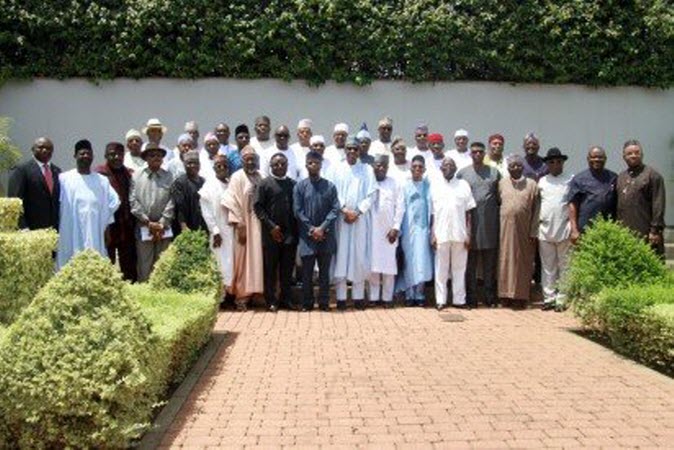There are no products in your shopping cart.
| 0 Items | £0.00 |

 SOCIETY pressure group the Socio-Economic Rights and Accountability Project (Serap) has written to President Muhammadu Buhari and the 36 state governors asking them to provide details of how security votes were spent between 2011 and 2019.
SOCIETY pressure group the Socio-Economic Rights and Accountability Project (Serap) has written to President Muhammadu Buhari and the 36 state governors asking them to provide details of how security votes were spent between 2011 and 2019.
Paid out to governors monthly, security votes have become a permanent feature of Nigeria politics and are seen as one of the major conduits for corruption as the funds are not audited or part of the states' budget. Given that governors do not have control over the security forces as the armed forces and police are the responsibility of the federal government, nobody knows what the security vote is used for.
In the separate requests sent to Mr Buhari and the governors, Serap said: “Given the current security realities in the country, we need the information to determine if public funds meant to provide security and ensure respect and protection of the rights to life, physical integrity, and liberty of Nigerians have been spent for this purpose. Our request is limited to details of visible, specific security measures and projects executed and does not include spending on intelligence operations.
"Unless the information is urgently provided, Nigerians would continue to see the appropriation of public funds as security votes and the institutionalisation of this cash in Ghana Must Go bags practice as a tool for self-enrichment. We would be grateful if the requested information is provided to us within seven days of the receipt and/or publication of this letter and if we have not heard from you by then, the registered trustees of Serap shall take all appropriate legal action under the Freedom of Information Act to compel you to comply with our request.”
Serap deputy director Kolawole Oluwadare, added: “We are concerned that rather than serving the citizens, the appropriation of public funds as security votes over the years would seem to serve high-ranking government officials at all levels. We are also concerned that the practice of security votes entrusts discretionary powers to spend huge public funds on certain elected public officials who may not have any idea of operational issues on security matters.
“The most general purpose of state power is to provide security for citizens and other residents and to enable them lead a life that is meaningful to them. However, the growing level of insecurity, violence, kidnappings and killings in Zamfara State and other parts of Nigeria suggest that successive governments have been unwilling or unable to satisfactorily implement this fundamental constitutional commitment.
“Serap believes that there is a strong link between corruption and insecurity, violence, kidnappings and killings in several parts of the country. Available evidence would seem to suggest that many of the tiers of government in Nigeria have used security votes as a conduit for grand corruption rather than spending the funds to improve and enhance national security and ensure full protection of Nigerians’ rights to life, physical integrity, and liberty.
In fact, former governor of Kano State Musa Kwankwaso once described security votes as another way of stealing public funds. The huge financial resources budgeted for security votes by successive governments at both federal and state levels–have not matched the security realities, especially given the level of insecurity, violence, kidnappings and killings in many parts of the country."
Mr Oluwadare added: “As revealed by a 2018 report by Transparency International, most of the funds appropriated as security votes are spent on political activities, mismanaged or simply stolen. It is estimated that security votes add up to over N241.2bn every year.
"On top of appropriated security votes, governments also receive millions of dollars yearly as international security assistance. According to Transparency International, security vote spending exceeds 70% of the annual budget of the Nigeria Police Force, more than the Nigerian Army’s annual budget and more than the Nigerian Navy and Nigerian Air Force’s annual budget combined.”